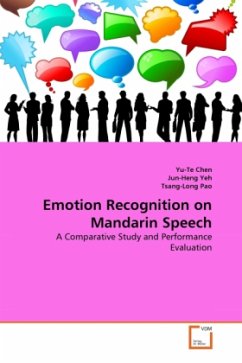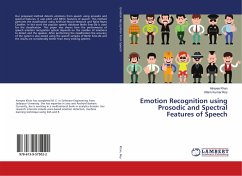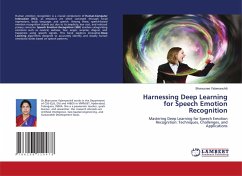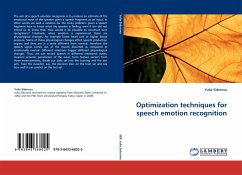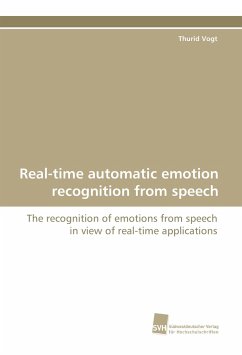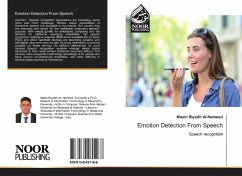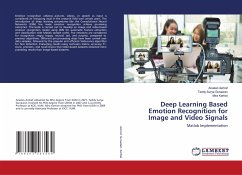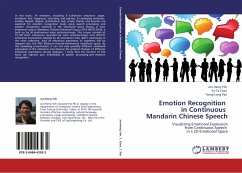
Emotion Recognition in Continuous Mandarin Chinese Speech
Visualizing Emotional Expression from Continuous Speech in a 2D Emotional Space
Versandkostenfrei!
Versandfertig in 6-10 Tagen
45,99 €
inkl. MwSt.

PAYBACK Punkte
23 °P sammeln!
In this work, 14 emotions, including 6 full-brown emotions: anger, boredom, fear, happiness, neutrality, and sadness, 8 underlying emotions: anxiety, despair, disgust, gratefulness, love, praise, shame, and surprise, are explored for emotion recognition study using speech processing and pattern recognition methods in the emotional space theory. A new emotional corpus, Mandarin Chinese Emotional Corpus 2010 (MCEC2010), is built up by 34 professional voice actors/actresses. This corpus consists of 19,136 short utterances recorded by voice actors/actresses and 472,017 emotional annotations labele...
In this work, 14 emotions, including 6 full-brown emotions: anger, boredom, fear, happiness, neutrality, and sadness, 8 underlying emotions: anxiety, despair, disgust, gratefulness, love, praise, shame, and surprise, are explored for emotion recognition study using speech processing and pattern recognition methods in the emotional space theory. A new emotional corpus, Mandarin Chinese Emotional Corpus 2010 (MCEC2010), is built up by 34 professional voice actors/actresses. This corpus consists of 19,136 short utterances recorded by voice actors/actresses and 472,017 emotional annotations labeled by 26 annotators who didn t participate in the voice collection. And all emotional expression of segments will be mapped into the PAD (Pleasure-Arousal-Dominance) emotional space. By this visualizing presentation, it can not only quantify different emotional expressions in the utterance, but observe the gradual changes of different emotional expressions during dialogue. I hope that the content of this book can improve your knowledge of speech processing and emotion recognition.



